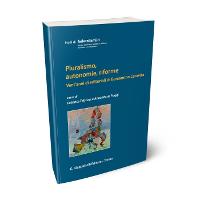
Log in or Create account
FOCUS - Reflective Judiciary N. 5 - 09/11/2018
Foreign judges on Pacific Courts: Implications for a Reflective Judiciary
The appointment of foreign judges to a state’s domestic courts stands in tension with the idea of a reflective judiciary. In most judiciaries around the world judges are citizens of the state on whose courts they serve. The use of foreign judges on domestic courts in states in the Pacific, as well as parts of Africa, Asia, the Caribbean and Europe, represents a numerically small but globally widespread exception to this norm. The practice is particularly prevalent in the Pacific region, which serves as the case study for this article. A foreign judge is a person who is a citizen or permanent resident of a foreign country and who, prior to his or her appointment as a judge, was a member of a national legal community other than that which he or she now serves as a judge. The appointment of foreign judges to domestic courts serves as an example of an ‘unreflective’ judiciary, in the sense that the judiciary is composed, at least in part, of judges of a different nationality and generally also of a different ethnic and cultural identity to the community. This article considers how the use of foreign judges affects the reflective nature of judiciaries in the Pacific. Paragraph 2 provides a brief overview of the nature and extent of the use of foreign judges in the Pacific region, focusing on the nine independent states of Fiji, Kiribati, Nauru, Papua New Guinea, Samoa, Solomon Islands, Tonga, Tuvalu and Vanuatu. While these states have distinctive histories, experiences and constitutional systems, characteristics such as the small size of the states, geographic isolation, colonial heritage and legal pluralism are broadly shared and provide the conditions for the use of foreign judges. This Part also outlines the legal frameworks for the appointment of foreign judges and the number of foreign judges serving in the region, drawing on a survey of the composition of superior courts in each state from 2000 to 2015. Paragraph 3 sets out two relevant ways in which a judiciary might be said to reflect the community that it serves. The first concerns the extent to which the judiciary reflects, in the sense or representing or speaking for, the community in its judicial decision-making. The second concerns the extent to which the composition of the judiciary reflects, in the sense of resembling, the community. Paragraphs 4 and 5 then examine how the use of foreign judges in the Pacific affects each of these senses of judicial reflectiveness. Paragraph 4 argues that foreign judges are unlikely to have the same knowledge and experience of the community as local judges and so are less likely to be able to bring relevant community values to bear on judicial decision-making. Foreign judges in the Pacific might instead be characterised as technical experts who provide an impartial, strictly legal form of judicial decision-making. This part also considers the value of judicial diversity, which is sometimes regarded as a positive feature of a reflective judiciary. The use of foreign judges, however, demonstrates that diversity cannot be conflated with reflectiveness. Rather, the practice provides a particular kind of diversity that privileges legal knowledge and experience over the capacity to reflect or represent the community’s views. Paragraph 5 is concerned with the community’s perception of judiciaries that comprise foreign judges. While there is a risk that the use of foreign judges might undermine public confidence in the judiciary, this does not seem to be the case in the Pacific. Paragraph 5 canvasses some possible reasons for this and suggests that in the circumstances of legal pluralism that pertain in Pacific states, the use of foreign judges serves to symbolise the distinction between the formal western legal system and customary legal systems. The ‘unreflective’ judiciaries of the Pacific convey a particular understanding of judicial decision-making and the role of the judiciary, which suggests that the value placed on the idea of a reflective judiciary and the ways in which that reflectiveness is realised are likely to vary across different legal contexts… (continues)
NUMERO 21 - ALTRI ARTICOLI
-
ITALIA - DOTTRINA
Le potenzialità dell'azione giuridica comunale nello sviluppo prospettico della normativa costituzionale sulle formazioni sociali
ITALIA - DOTTRINAIl regionalismo differenziato alla luce delle recenti evoluzioni
ITALIA - DOTTRINAThe European Banking Authority in light of the CJEU jurisprudence
-
ITALIA - DOTTRINA
Tempo e potere di riesame: l'insofferenza del giudice amministrativo alle 'briglie' del legislatore
ITALIA - DOTTRINACompetenza del giudice ordinario e tardività dell’eccezione di arbitrato
-
ITALIA - DOTTRINA
Uguaglianza, diritti umani e vincoli di bilancio
ITALIA - DOTTRINALe strategie macroregionali dell'Unione europea



 Registrati
Registrati Login
Login
 Riforme istituzionali e forma di governo
Riforme istituzionali e forma di governo Lavoro Persona Tecnologia
Lavoro Persona Tecnologia Osservatorio di Diritto sanitario
Osservatorio di Diritto sanitario Osservatorio Trasparenza
Osservatorio Trasparenza Africa
Africa Human Rights
Human Rights America Latina
America Latina Territorio e Istituzioni
Territorio e Istituzioni Storico focus
Storico focus Scarica il Documento integrale
Scarica il Documento integrale STUDI FEDERALISMI
STUDI FEDERALISMI





03/06/2024
15/03/2024
29/12/2023
04/08/2023
05/06/2023
30/01/2023
09/12/2022
28/10/2022
28/03/2022
02/02/2022
17/01/2022
12/02/2021
18/01/2021
13/11/2020
12/10/2020
17/06/2020
01/06/2020
18/05/2020
04/05/2020
24/04/2020
10/04/2020
27/03/2020
10/04/2020
25/10/2019
27/09/2019
15/04/2019
25/03/2019
14/01/2019
14/12/2018
16/11/2018
09/11/2018
14/09/2018
03/09/2018
22/06/2018
23/02/2018
27/11/2017
02/10/2017